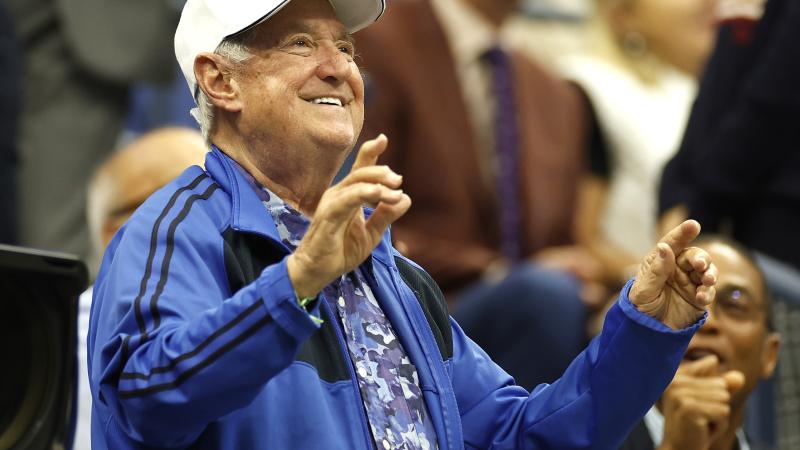GOP lawmakers, candidates highlight factors driving likely 'red wave'
"[T]here is going to be a situation where Republicans could easily take the majority."
With the midterm elections fast approaching and Republicans poised to make considerable gains in Congress, party insiders are pointing to the economy and administrative incompetence as key drivers of a potential "red wave" in November.
Speaking on the "Just the News, No Noise" television show, Texas Republican Rep. Troy Nehls highlighted issues of incompetence in the Census Bureau and the executive agencies as issues plaguing the Democrats.
The Census Bureau admitted that it undercounted the populations of certain red states and overcounted those of some Democratic-leaning ones, resulting in an allocation of congressional seats more favorable to the Democrats.
Nehls observed that "just by chance many of them where they overcounted the population, meaning they can keep their congressional seats, they didn't want to lose it, would be pretty much the blue states."
"They missed the mark big... we should have gained three" seats in Texas, Nehls said, adding that Republicans needed to hold the administration accountable for significant errors should they take the reins in November. "So a lot of questions," he continued. "I hope we can get something positive done up there. But I'll guarantee that a lot of questions need to be asked, a lot of investigations because this administration seems to just go to the extreme, extreme lengths to keep one party rule."
The Texas Republican then turned to the chaotic situation at the southern border, which has seen more than 2 million migrants cross illegally in the past year, alongside at least 600,000 "gotaways." Nehls highlighted the "gotaways" in particular, saying "[t]hey're the ones bringing the drugs. They're the ones bringing the families through, these women that they're going to use for sexual exploitation in our country. And they're the ones we really, truly need to be concerned about, in addition to the 98 terrorists this year. This year, think about that."
"I've been at the polling locations today," he continued. "Texas' first day of early voting, I'm telling you, people are fired up in this district, that Hispanics are coming to vote and they're giving the thumbs up. They're sick and tired of Joe Biden, and the far left, and what they're doing to our country. We need to have a secure southern border. The administration doesn't believe it, and they're going to pay for it. They're going to pay for it dearly on November 8."
Nehls also pointed to Transportation Secretary Pete Buttigieg, whom he said was "asleep at the wheel" while airlines were cutting back on domestic flights. "You think Mayor Pete is concerned about that?" he asked. "No, no, no. Mayor Pete's running for president is what he's doing. He's out there focused on Roe vs. Wade and everything but his job.
"He should be out there talking about the airline industry and fuel prices and everything else, but he's not. He's running for president. So, he needs to just get out of that seat and put somebody in there that actually, truly will handle some of the issues that [matter] to Americans," Nehls asserted.
Also appearing on "Just the News, No Noise," Georgia GOP House candidate Mike Collins pointed to the economy as a major driver of Republican electoral prospects while also noting that the party's field of outsider candidates was boosting voter enthusiasm.
"[P]eople are looking for an outsider, somebody that is conservative to the core," Collins asserted. "And and in most cases, we're just all parts, all different aspects of life. You know, I'm in the trucking business, some people, we've even been campaigning with a nuclear engineer."
"So it's just people willing to put their careers to the side, have set their business to the side and go and serve our country in Congress and help get this country back on track," he continued. "And I think most importantly, what people see out there are just people that are willing to go fight, and I mean, fight to get this place back on track."
He then contrasted a prospective GOP majority with those of the past, saying that the types of candidates running for office as Republicans this cycle would present "an opportunity for leadership to really go with big bold ideas and and hold Republicans in line, and do some really good oversight."
"I heard some figures the other day that once we get through the November 8 election, that over 72% of the Republican Caucus in the House of Representatives will be America-first agenda candidates. That's incredible," Collins said. "And the opportunity is incredible to go along with that."
On the economy, Collins expressed optimism about crossover support from Democrats and the traditionally blue-leaning Black electorate because inflation was hurting people of all stripes.
"I see people that are actually... they understand what inflation does. And they understand that the fact that every time that the gas prices go up, or their food prices, anything they buy or consume goes up, it's just an increase in taxes, and they're actually paying more in taxes," Collins said. "And people are really paying attention now to all the pocketbook issues. And that, at the end of the day, I don't care whatever issues you put out there. Most people gonna vote with their pocketbook."
"And like I said, we get up there we take that majority and then we can we handle the country's business the way that we handle our business and we will be there for a long time," he concluded. He then pivoted to discuss the reported shortages of diesel in reserve and the Biden administration's use of the Strategic Petroleum Reserve to drive down energy prices.
"Well... I don't think that will run out. I'll put it that way. You know, the problem is... when they start... stealing from our strategic reserves, you've got to replenish that at some point," he said. "It's not like it magically just refills itself. So you've got to buy that back." He then contrasted the rising costs of energy under President Joe Biden with the relatively lower fuel prices under the Trump administration.
Senate Working Group Executive Director James Kimmey echoed Collins' sentiments, pointing to inflation and related factors as contributing toward the Republican Party's November prospects.
"[I[nflation is skyrocketing. Home prices are astronomical, gas is expensive, putting food in the fridge or on the table is much more expensive than it was certainly two years ago, or even 10 years ago," he said. "And so, Americans are sitting back and realizing like, 'Who is that party, you know, who are the people that we're going to elect, who can at least make it a little easier for us to survive?'"
"I think looking into the cycle with a little bit over two weeks left, Americans are frustrated, Americans are hurting," he said. "It's expensive to be an American these days. And I think that they're going to take out those frustrations on the polls. And you're gonna see that in states where there's Senate, incumbent Senate Democrats that are fairly vulnerable."
"[I]t comes back, it comes simply back to the economy. It comes, you know, you look at historical trends," he said. "This is a president's first midterm or first term midterm elections, and historically, you see that the party that's running in opposition of the president tends to gain seats in Congress."
"It's not going to be different this cycle," he insisted. "And when we see the fact that the Senate is split 50-50, you have to understand that there is going to be a situation where Republicans could easily take the majority."
Kimmey further pointed to candidate quality, repeating Collins' point on candidates generating enthusiasm. In particular, he pointed to GOP candidates in Washington and Colorado as individuals who could flip two Democratic seats.
"[I]n Washington State with Tiffany Smiley, she's an incredible candidate. Patty Murray, the senator who's been there since the early 90s, I think 30 years almost since she was first elected," he went on. "She's never had a candidate, she's never had opposition that was able to capitalize on kind of the national momentum, and also offers such excitement and just offering like it's a spirit of hope for the people of Washington."
"So I'm really excited about that candidacy in that campaign. I'm keeping a very close eye on it. I'm somewhat bullish on it," he added, before pivoting to John O'Dea, the Republican nominee in Colorado.
"I think Joe O'Dea in Colorado is running an exceptionally well campaign, considering the fact that Colorado has 1.7 million registered Independent voters, unaffiliated voters," he said. "So only a million Democrats and 950,000 Republicans, but 1.7 million independents. So if you're a Republican or Democrat, you need to run a middle of the road message in order to appeal to those independents. That might be conservative on some issues and liberal on the others," he concluded.














